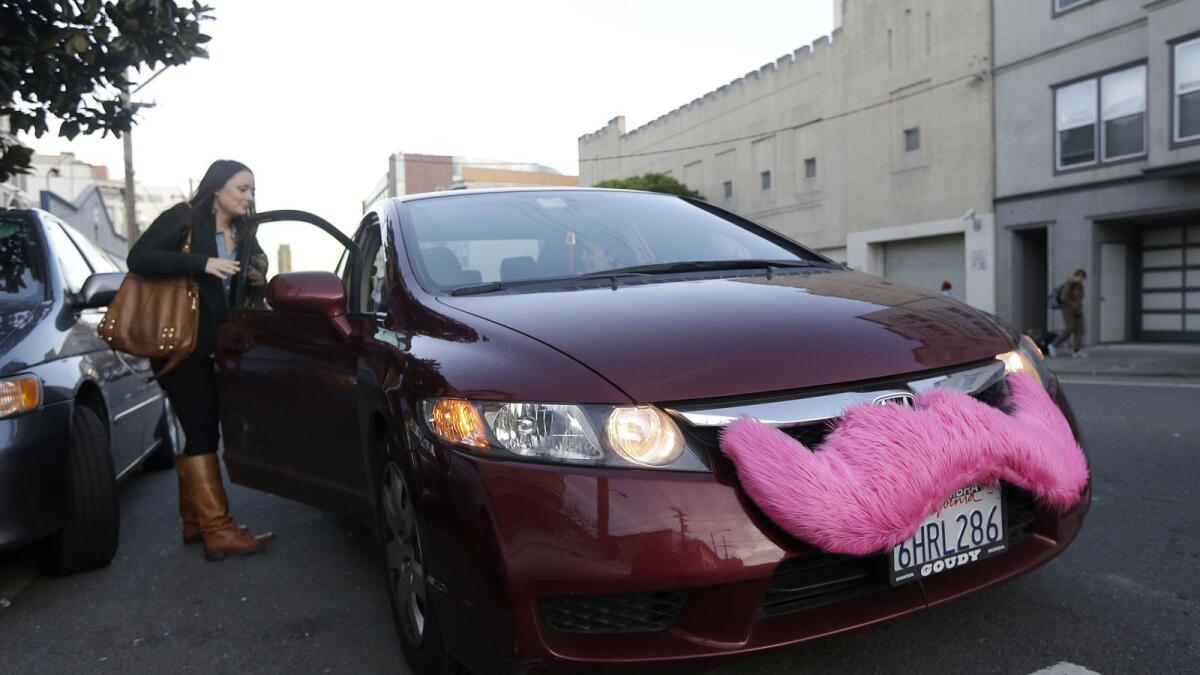California DMV retracts memo requiring commercial plates for Uber, Lyft

- Share via
The California Department of Motor Vehicles on Friday night revoked an earlier memo that implied that drivers for ride-hailing services such as Uber, Lyft, and Sidecar are required to carry commercial license plates.
In a statement released late Friday night, DMV officials said “there remains uncertainty” about the effect of the law described in the memo and “recent regulatory and statutory changes affecting ride share operators.”
“We jumped the gun, and we shouldn’t have,” the statement continued. “The matter requires further review and analysis which the department is undertaking immediately.”
The agency had issued a memo earlier this month citing the California Vehicle Code, saying “any passenger vehicle used or maintained for the transportation of persons for hire, compensation, or profit is a commercial vehicle.”
“Even occasional use of a vehicle in this manner requires the vehicle to be registered commercially,” the memo read.
The “reminder” of existing law, as a DMV spokesman put it earlier Friday, appeared to be addressing transport network companies (TNCs) like Uber and Lyft, whose drivers use their own cars, which are mostly registered as personal vehicles.
Some analysts had predicted the business implications, including requirements like commercial insurance, could be a game-changer for the embattled rideshare industry.
The memo – which was first reported by Buzzfeed – follows rules regulating TNCs, set by the California Public Utilities Commission in 2013. Those rules and state laws require TNC drivers to drive their own private vehicles, but don’t specify a particular type of registration.
Representatives of the rideshare groups told The Times on Friday that they didn’t believe commercial plates should be required for part-time and occasional ridesharing drivers.
For more breaking news, follow me @cmaiduc
More to Read
Inside the business of entertainment
The Wide Shot brings you news, analysis and insights on everything from streaming wars to production — and what it all means for the future.
You may occasionally receive promotional content from the Los Angeles Times.












